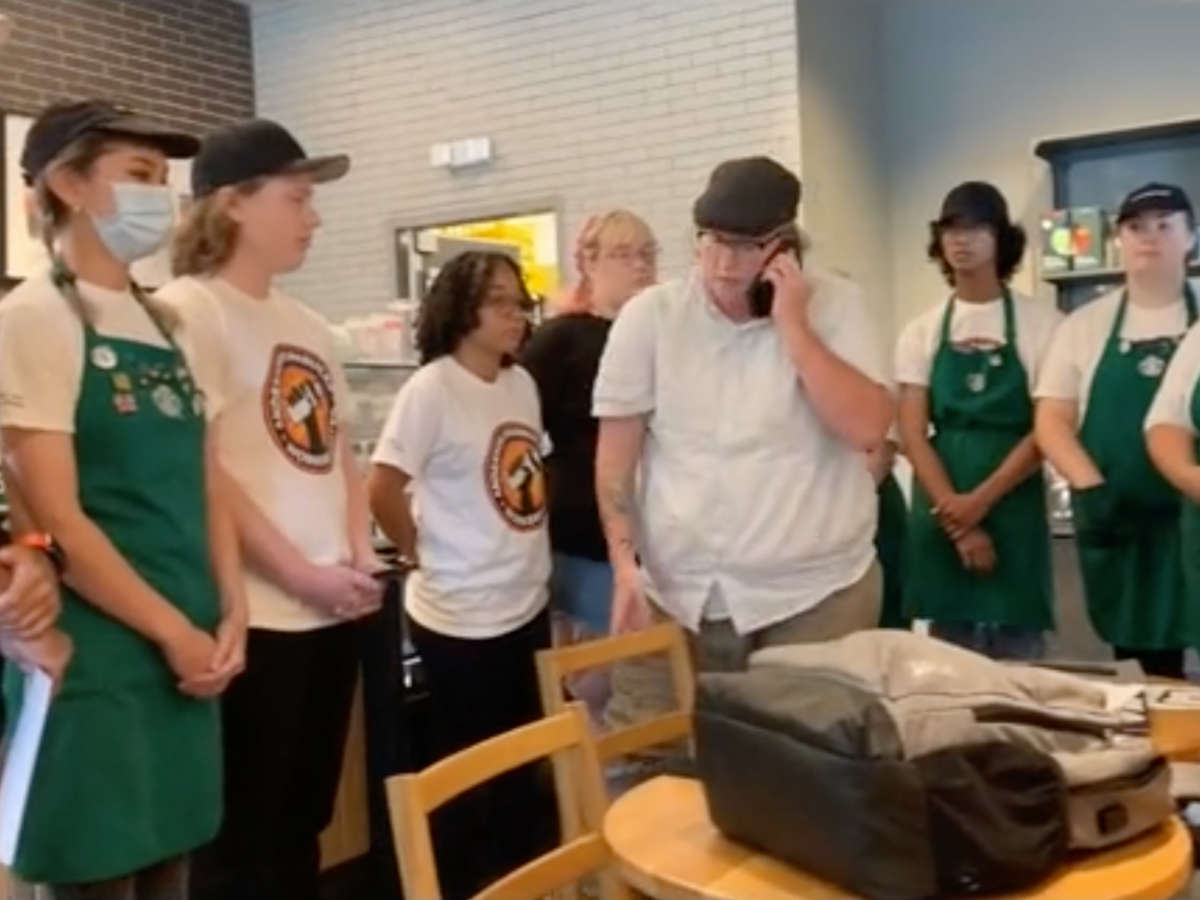In the latest move in Starbucks’s fierce anti-union campaign across the country, the company has closed a unionized store in South Carolina after a manager filed kidnapping and assault charges against workers — charges that the union calls “false and absurd.”
Last week, workers in Anderson, South Carolina, confronted their manager with a list of demands, including fixing equipment in the store and providing unionizing stores with the same wage raises that the company is offering to non-union stores, as shown in a TikTok posted by Starbucks Workers United that has garnered over 7.6 million views.
The video shows workers confronting their manager with the letter in the store as the manager is on the phone with corporate. In an audio recording of the incident heard by Truthout, the manager asks if they can leave, and the workers say “yes.”
But after the manager pushed employees and exited the store, the manager contacted the local police and filed kidnapping and assault charges against the workers. Now, the company has closed the store down, suspended the workers indefinitely and forced them to take paid time off. They have also banned workers from entering any Starbucks location.
The union condemned the charges and store closure, saying that the moves clearly constitute union busting.
“These charges are false and absurd. The Anderson Starbucks workers were demanding better working conditions in their store and in no way, shape, or form, did they attempt or prevent the manager from leaving the store,” the union wrote in a press release. “Starbucks has put the workers on paid time off, suspending them indefinitely, and banned them from visiting any Starbucks location. Stabucks also closed down the store.”
Starbucks Workers United is filing charges of illegal union busting against the company, which has closed multiple unionized stores and fired dozens of pro-union employees. Starbucks is currently being prosecuted by the National Labor Relations Board (NLRB) for over 200 unfair labor practice charges related to the company’s campaign to shut down the union effort in Buffalo, New York, where the movement began.
In May, workers at the Anderson location became the first in the South to unanimously win their union vote, and have since gone on strike multiple times demanding higher wages and better working conditions. Workers say that, since they unionized, the company has been slashing their hours in “a blatant act of retaliation” against the union. They have also brought up issues with their cold brew machine and a malfunctioning sticker printer, which they say is slowing down service.
Starbucks has said that it can’t offer workers the same wage raises if they’re in the midst of a union campaign, claiming that it would constitute a “unilateral change” to workers’ conditions, which is in violation of federal labor laws. Labor law experts and the union say that this isn’t true, and that discriminatorily applying wage raises is the actual violation of labor laws.
To further elucidate the point, Workers United President Lynne Fox, who oversees the union that Starbucks Workers United is part of, wrote in a letter to Starbucks CEO Howard Schultz last week that the union waives any objection it may have to giving unionizing workers the wage raise, essentially removing the company’s legal cover for its plan. “Workers United knows that these statements are misleading at best and false at worst,” Fox wrote.


